Feeding birds has been a tradition connecting birds and humankind for ages now. While commercial bird foods are on the rise now, it was the simple carbohydrates families shared with our feathered friends.
One of them was none other than rice!
However, most foods fed by humans back in the day were unsafe. One of the most notorious ones was bread, of course. We all know how that went, right?
Unfortunately to this day, it’s the rice that gets the bad rep and not the bread. I can imagine you being taken aback by this rather unpopular fact. But you heard it right!
In this article, we’re going to explore the biggest hoax of the bird community!
Is Rice Safe for Birds?
Rice is easily the most scandalous food in the bird community. But guess what? All those rumors about rice are nothing but a myth!
The misconceptions about uncooked rice causing birds’ stomachs to explode have been spewing around for a while now.
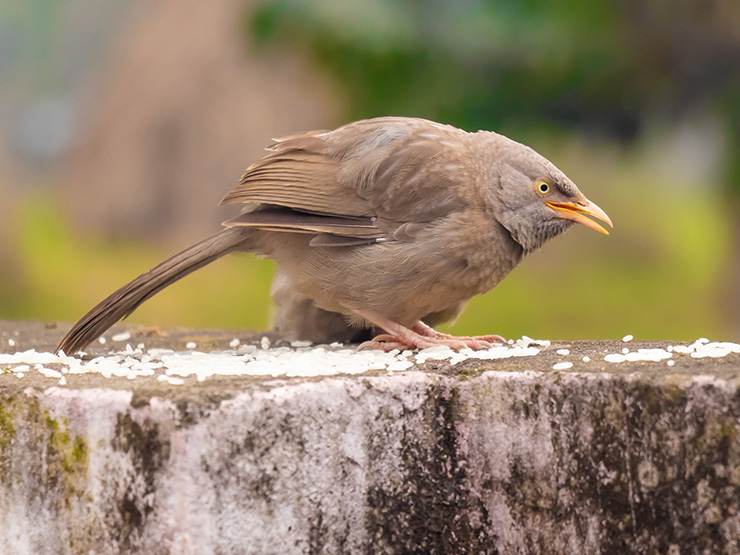
Studies have shown that the idea of uncooked rice expanding due to moisture in a bird’s stomach is untrue. A survey deduced that of all the grains and seeds that birds consume, rice only makes it to the list of the ones that expand most.
You know what that means right? You can re-spark the tradition of throwing rice at your wedding without a care in the world again (besides the food waste in this recession, of course).
Besides the concern over birds exploding, there have also been some valid worries over choking hazards in young birds.
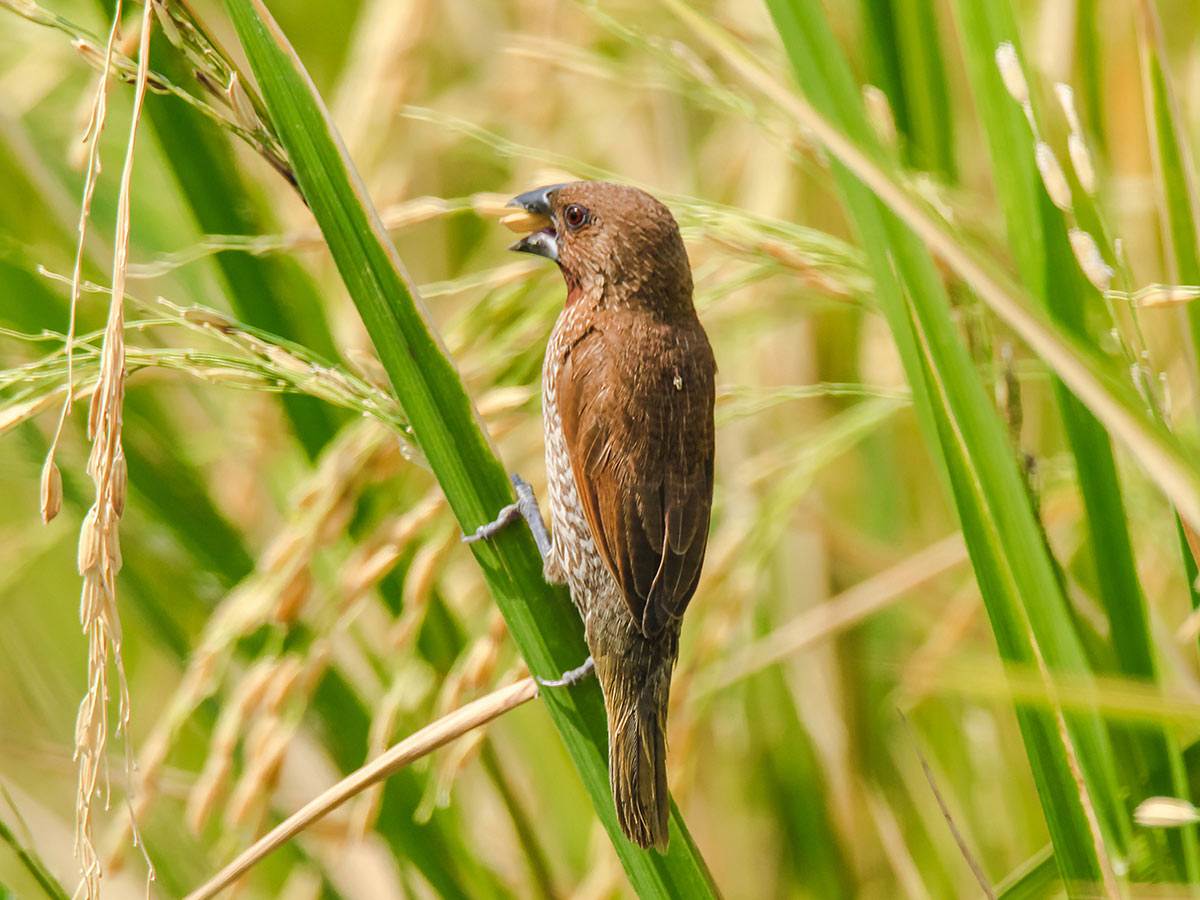
One thing to remember is that hatchlings don’t scavenge for food themselves. Birds crush food well enough to prevent choking risks before feeding it to their hatchlings.
Baby birds only feast on what is provided by their parents.
With all the myths settled, it’s easy to say that rice is perfectly safe for birds and even baby birds.
What Are the Unknown Benefits of Rice?
With all the misconceptions circling, it is forgotten that rice offers a plethora of nutrients as well as other health perks.
The nutritional content of rice is subjective to what type of rice is being fed. Hence, in this section, the benefits we discover will be based on nutrients provided by rice of all sorts.
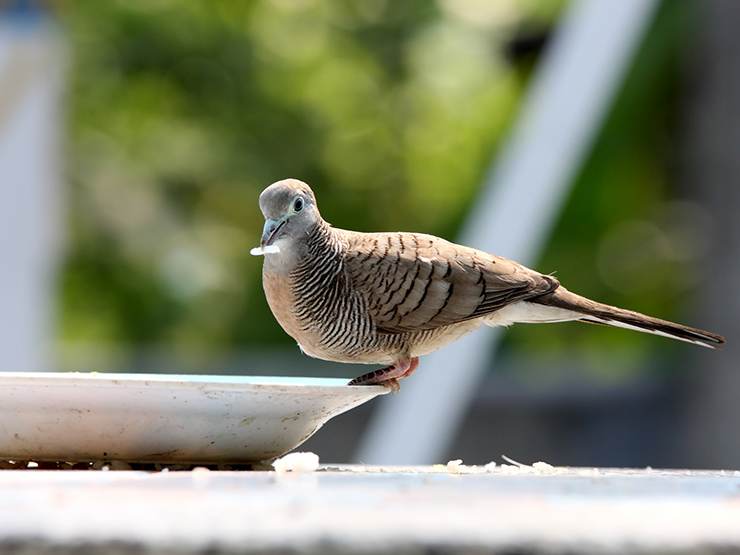
Here’s an extensive list of the nutrients rice has to offer:
- Packed with fiber
- Dense with healthy carbs
- Chock-full of plant protein
- Doesn’t spike cholesterol levels
- Helps prevent Anemia
- Good source of vital phytochemicals
1. Packed With Fiber
As bird parents, we always look out for bird food with high fiber content as it is one of the essential building blocks of their diet.
Birds require fiber for providing roughage to prevent constipation and damage to the intestine walls. Without ample fiber in their diet, birds can suffer from gastrointestinal diseases.
Rice provides 3.5g of fiber per cup of serving. It is chock-full of fiber as it crosses the RDI of fiber for birds.
2. Dense With Healthy Carbs
The biggest no-no when it comes to bread was how it provided nothing but empty calories. That’s not the case for rice.
Rice contains complex carbohydrates which keep it on the medium glycemic index as it doesn’t increase the blood sugar levels like bread does.
Since rice provides over 45g of complex carbohydrates, they are an impeccable source of sustainable energy.
3. Chock-full of Plant Protein
Apart from fiber, another key building block to creating a healthy and sustainable diet for a bird is protein. Protein is responsible for keeping young birds as fit as a fiddle and encouraging the growth of muscles.
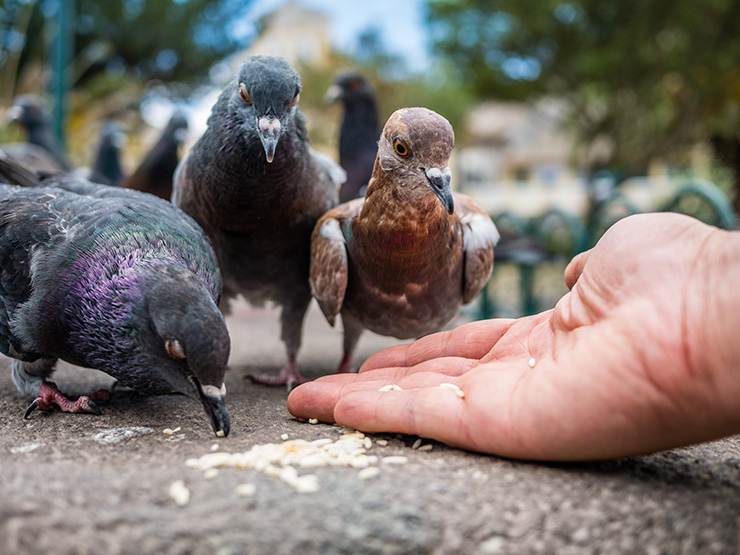
A lack of protein in a bird’s diet can cause musculoskeletal diseases such as Angel Wing disease which is commonly seen in garden birds as most of their diet consists of crackers and bread. However, rice doesn’t make it to that list.
It contains 4g of plant protein that partake in providing incomplete amino acids that will later bind with other amino acids to make essential proteins for your bird’s health.
4. Doesn’t Spike Cholesterol Levels
Many foods, such as nuts, tend to increase blood cholesterol levels when consumed. Rice contributes to no such thing. Rice doesn’t increase levels of HDL cholesterol as it has no saturated fats.
On the other hand, it provides traces of Omega 3 fatty acids which helps prevent cardiovascular diseases and strokes.
5. Helps Prevent Anemia
Much organic rice is an impeccable source of iron, which is required for growth and development. A deficiency of iron leads to anemia and a wormhole of other symptoms such as fatigue and low blood pressure.
Rice contains 0.4mg of iron.
6. Good Source of Vital Phytochemicals
Phytonutrients will have potent anti-heart disease and anti-cancer effects on your bird’s health. Some of the phytochemicals that rice contains are phenolic acids, flavonoids, and tannins.
The function of these phytochemicals is aplenty. They are anti-inflammatory, hypoglycaemic, anticarcinogenic, antiallergenic, and antiatherosclerotic.
What more can a bird parent want?
Phew! That seemed like a never-ending list of benefits coming from the most scandalous carbohydrate, right?
What Is the Best Type of Rice for Your Bird?
Since all the benefits enlisted above are general benefits that most rice offers, as bird parents, we’re already keen to know which is the best, aka which provides the most nutrients.
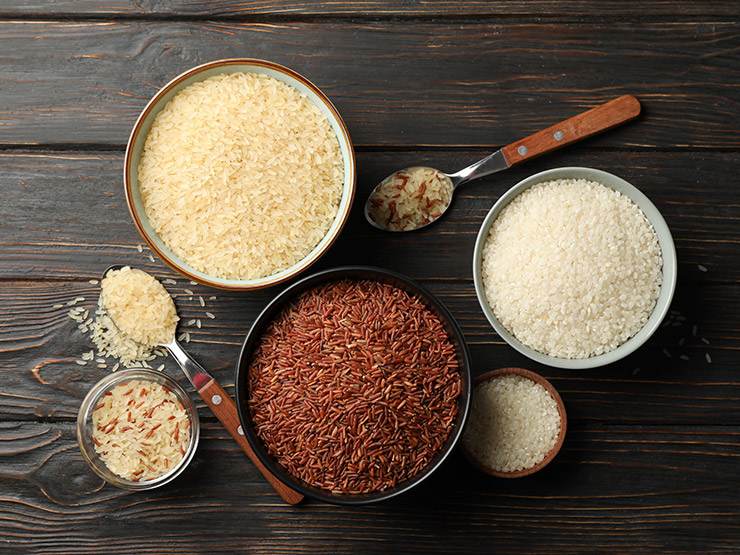
Don’t ponder anymore because I got you covered.
In this section, we will evaluate which rice is best after taking the price, nutrients, and availability into consideration.
Here are our contestants for this section:
1. White Rice
White rice is a variety of rice found worldwide. When you think of rice, white rice first comes to mind.
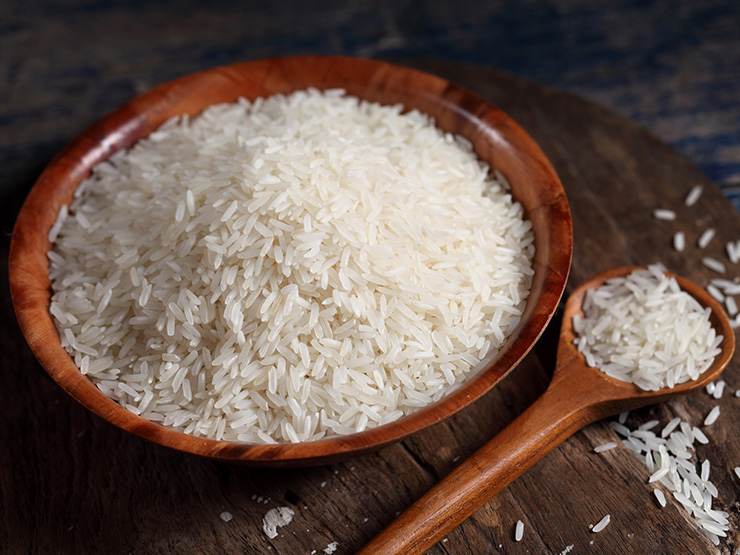
One of the key contributors to its popularity is the price tag it comes with. White rice is the cheapest option for rice in the market.
Its neutral flavor compliments every meal and requires little to no adjusting. All of these sound amazing, right?
Unfortunately, this isn’t one of the cases where affordable means better. White rice is a heavily processed grain which causes it to be stripped of all of its nutrients.
Processing the rice results in the reduction of its bran which contains nearly all the nutrients that got us hooked on rice in the first place.
2. Brown Rice
Brown rice is the second but not the best contender in this list. Here’s why:
While brown rice remains to be highly nutritious, it isn’t found worldwide at least affordably. Brown rice can be found in your grocery stores, however, it is rarely found in local ones.
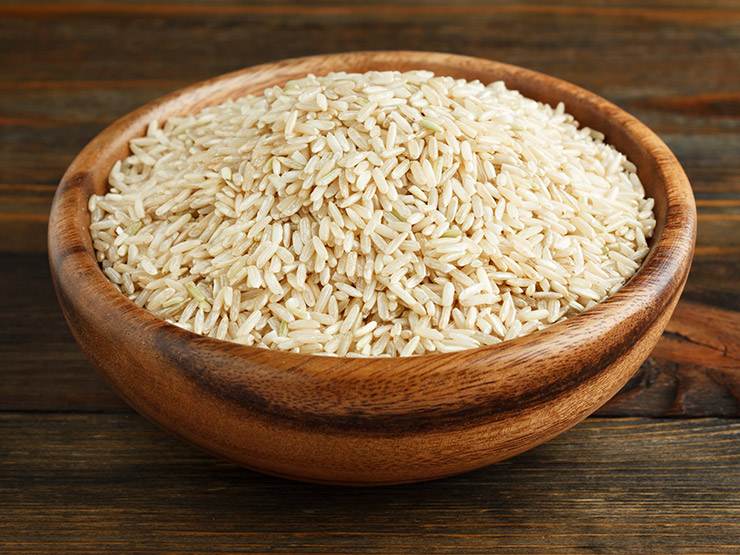
The reason behind this is that brown rice relatively has the lowest shelf life of all the kinds of rice available.
It’s not the most sustainable. But, their nutrient value makes them a runner-up in my list.
3. Red Rice
As always, I’m saving the best for last.
Red rice is ten times more nutritious than any other commercially available rice. Due to brown and white rice stealing all the spotlight, red rice goes amiss in the rice section of the grocery store.
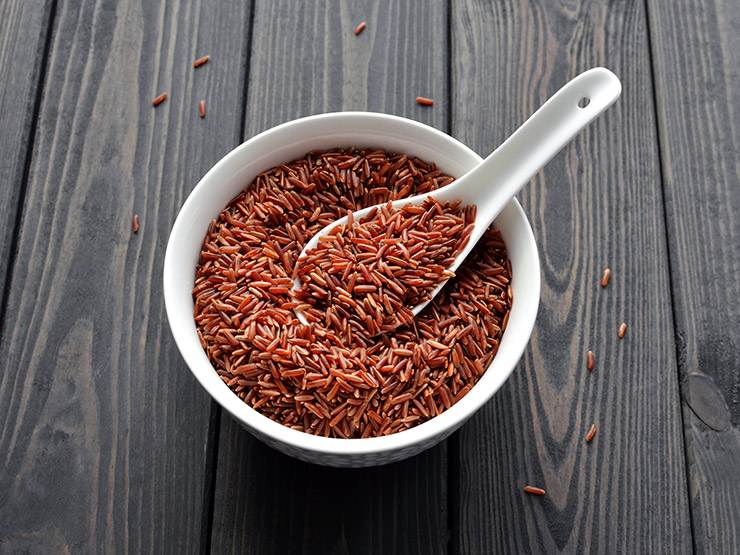
It’s good news for bird parents as the prices of red rice are a lot lower in comparison to other organic kinds of rice. They’re also widely common in third-world countries.
Overall, red rice is a win-win situation for all bird parents!
Which One Is Better: Cooked Or Uncooked?
Rice can be cooked in many ways. Most common is steamed rice with nothing added to it that makes it perfectly suitable for our feathered friends.
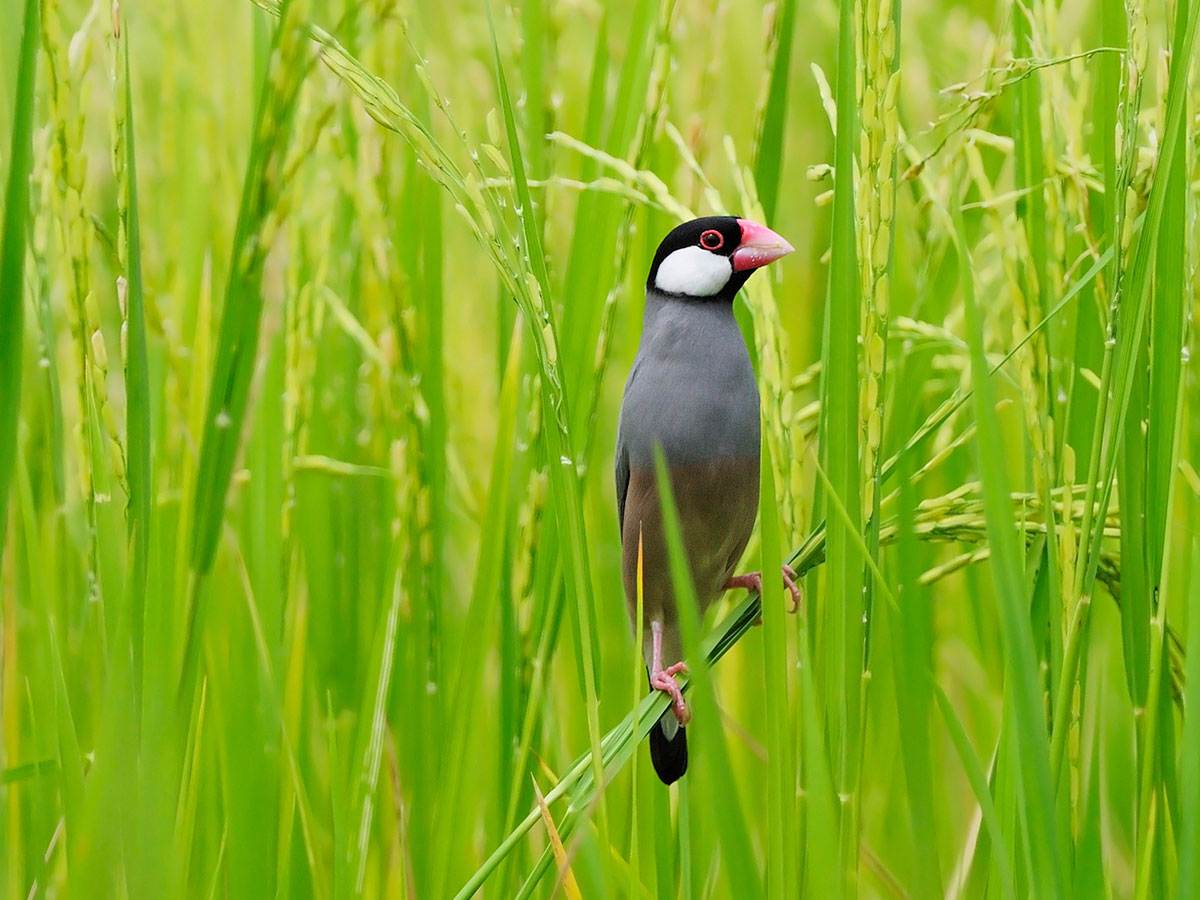
Since there are many concerns about uncooked rice, cooked rice can be a safe option although both of them are. However, there’s no need for worry as cooking or steaming doesn’t blanch rice from any of its nutrients.
Uncooked rice however will not only be just as safe but the crunchy texture of it will be an ideal sensory stimulant for the little birdies. They’re both nutritious and filling food and also a snack!
Frequently Asked Questions
Even though we covered everything you need to know about rice, there still may be some queries. Hopefully, this section will resolve all your concerns about rice!
Can Birds Eat Cooked Rice?
Cooked rice is safe for birds and lacks no nutrients whatsoever. It is the perfect option if you are hesitant about the rumors regarding uncooked rice.
Make sure to cook the rice with only water and no added salt or oil.
Can Baby Birds Eat Cooked Rice?
The safest option for baby birds is to be fed cooked rice if they are not having it through their parents.
Parents tend to crush any food before giving it to their hatchlings to prevent any choking hazards. The same can be achieved by hardly mashing cooked soft rice.
Can Wild Birds Eat Cooked Rice?
Wild birds can frequently be seen feasting on rice grains in the paddies hence cooked rice may be unfamiliar to them.
However, once they are introduced to cooked rice they will fall in love with it nonetheless.
Can Birds Eat Dry Rice?
Dry rice and uncooked rice are pretty much the same thing however dry rice lacks moisture unlike uncooked rice. Hence it can be hard for our feathered friends to digest them.
Opting for uncooked rice is best in this scenario.
Can Birds Eat Sticky Rice?
Sticky rice is a traditional Thai dish that is loved worldwide. Unfortunately, it is a high choking risk to birds as they don’t have teeth or enough saliva to disintegrate the stickiness like us. It can be stuck in their digestive tract.
It’s best to be wary of sticky rice!
Can Birds Eat Sushi Rice?
Sushi rice is another variant of sticky rice. Not only is it sticky, it is also high in sodium as it is added when cooked. Sushi rice can put your bird straight into salt toxicosis.
Such characteristics make sushi rice unsafe for birds.
Can Birds Eat Puffed Rice?
Puffed rice is a light airy rice and is perfectly safe for birds if there are no added seasonings. They would make a yummy snack for our feathered friends to munch on.
Can Birds Eat Rice Cakes?
Rice cakes are just decompressed puffed rice and if purchased without any seasonings or salt they can be the perfect snack to make you bird engage in foraging and as an occasional treat or two.
Final Remarks
With everything jotted down, it’s easy to see how mistaken rice has been when all along it has been an excellent carbohydrate that is source of a plethora of nutrients.
I’m sure your vet will be elated to hear you want to include rice as a part of your bird’s daily diet!